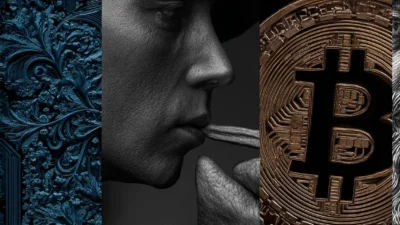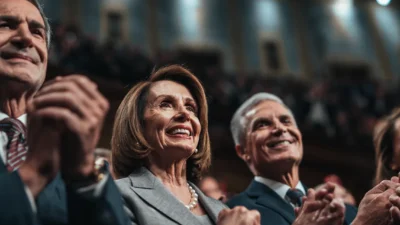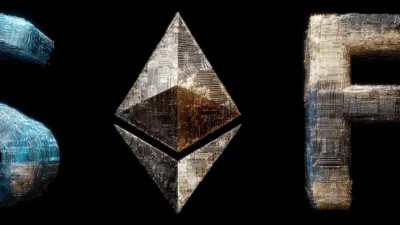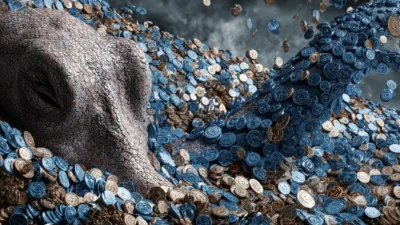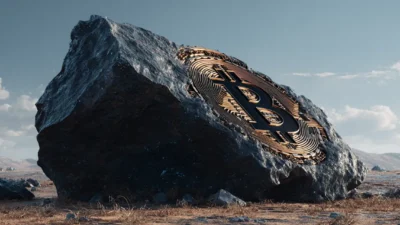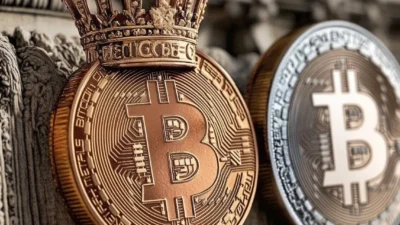TLDR
- The Texas Senate has passed SB-21, also known as the Texas Bitcoin Strategic Reserve Bill.
- It passed by a 25-5 vote.
- It still needs to go through the Texas House of Representatives.
Today, the Texas Senate made headlines in the cryptocurrency world by passing SB-21, also known as the Bitcoin Strategic Reserve Bill, with an overwhelming 25-5 vote. The move sparked considerable discussions across digital asset circles.
Texas is the first state to have a this kind of bill go so far through the process. Next up? It goes to the House. Here’s everything else you may want to know as far as the bill is concerned.
Ain’t No Bitcoin Party Like a Texas Bitcoin Party
The Bitcoin Strategic Reserve Bill gives Texas the legal green light to acquire and hold Bitcoin as part of its financial reserves. Proponents of the bill, including its primary advocate, Texas State Senator Charles Schwertner, have argued that Bitcoin’s scarcity and increasing global adoption make it a strong addition to the state’s reserves.
This legislation highlights an interesting turn of events, as Bitcoin evolves from a misunderstood asset to a viable financial tool. But don’t worry, the state isn’t betting the farm.
Lawmakers reassured concerned parties that Bitcoin is being viewed less like a competitor to the U.S. dollar and more like a digital version of gold.
Translation? It’s an asset, not a currency replacement.
Why Bitcoin (and Other Digital Assets)?
Introduced initially as a Bitcoin-only bill in January 2025, SB-21 underwent revisions in February. Following an executive order issued by President Donald Trump on January 23, directing a federal commission to explore the creation of a “digital asset stockpile,” the bill was revised to include other digital assets beyond Bitcoin.
His recent social media posting probably isn’t hurting the idea, either…
Schwertner’s initial focus on Bitcoin mirrored the asset’s reputation as the original and most established cryptocurrency. Think of Bitcoin as the classic Ferrari of crypto – reliable, recognizable, and a go-to classic.
However, broadening the bill’s scope to include diverse digital assets reflects the growing recognition that blockchain technology extends beyond Bitcoin, encompassing other valuable tokens, projects, and applications.
What Makes Bitcoin Appealing to Texas?
Texas has always been one of the most crypto-friendly states in the union. It’s a hub for mining and even has a group called the Texas Blockchain Council that advocates for blockchain innovation within the state.
From the finite supply to the jobs it’s creating, making it a permanent fixture in the state government has a lot of pros.
For Texas, holding Bitcoin could act as a hedge against inflation or other economic pressures.
However, while Bitcoin is the star player, the inclusion of other digital assets in the revised bill signals an open-minded approach. It acknowledges the variety and potential of other blockchain innovations, like Ethereum’s smart contracts or stablecoins pegged to less volatile currencies.
What Does This Mean for Crypto Beginners?
Texas’ move might leave you wondering why governments care so much about Bitcoin or other digital assets. And we get it. Many people still view digital assets as risky.
But if you’re already holding and this thing passes the House…y’all better buckle up. We think there are a lot of groups and governments watching this bill. A lot of people want it, but they don’t understand how to do it. Some may be a little scared.
Someone has to be the first. And it’s looking like that could very well be Texas.
Historically, governments and states have relied on various strategies to stabilize their finances, often involving holding gold or foreign currencies as reserves. Adding Bitcoin into the mix modernizes its approach to fiscal security, pushing acceptance of digital assets even faster than most users were anticipating.
New users may notice less resistance to Bitcoin and other cryptocurrencies among institutional investors and even governments.
However, no amount of strategic reserves will fully remove volatility from crypto markets. All governments have stock market holdings and dealing in other financial markets, and all of those markets still deal with some amount of volatility. Please keep that in mind.
Taking It to the House!
While SB-21 is a huge win for the industry and Texas, it’s worth noting that it has not passed completely. It still has to go through the Texas House of Representatives.
For those of you who do not particularly like news, we think this is something everyone should be following. It’s that big of a deal. But of course, Dypto Crypto will have you covered as the news breaks.
The Texas Bitcoin Reserve Bill is a prime example of how the landscape is becoming more integrated into traditional finance without losing its digital roots. Gone are the days when Bitcoin was written off as a fringe idea. Its adoption by governments signals legitimacy and likely foreshadows future mainstream use cases.
Take this as an opportunity to learn about Bitcoin’s fundamentals and keep tabs on how governments interact with digital assets.




